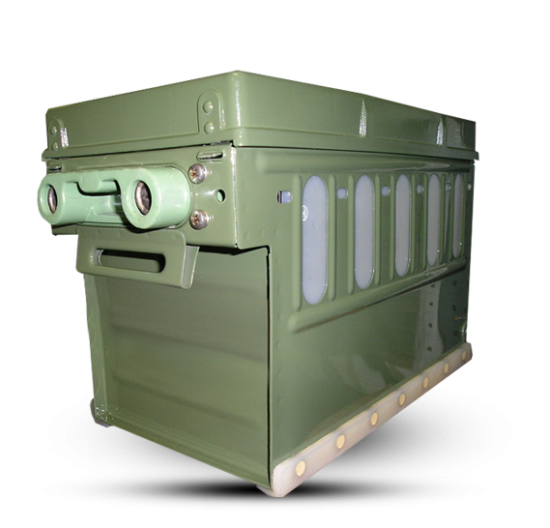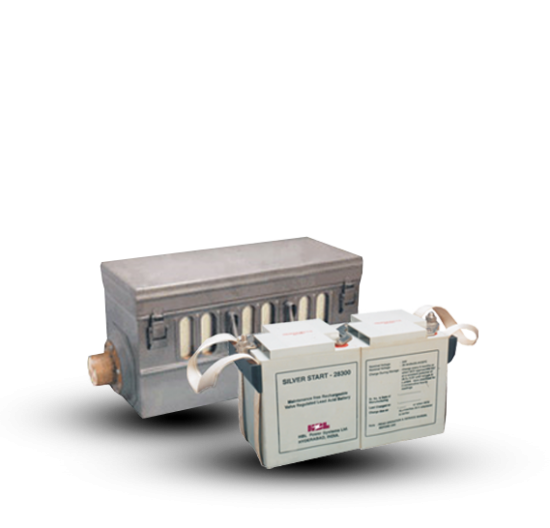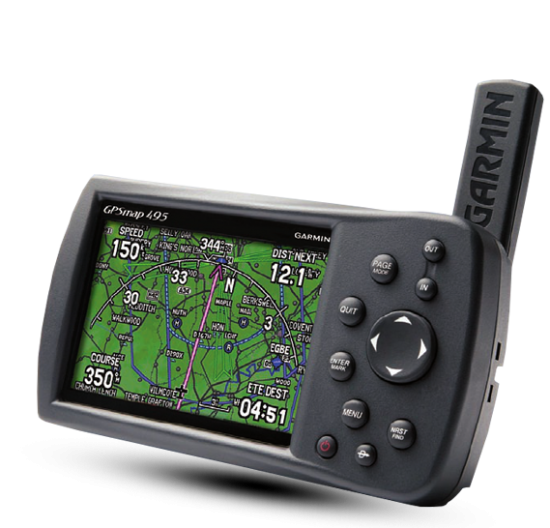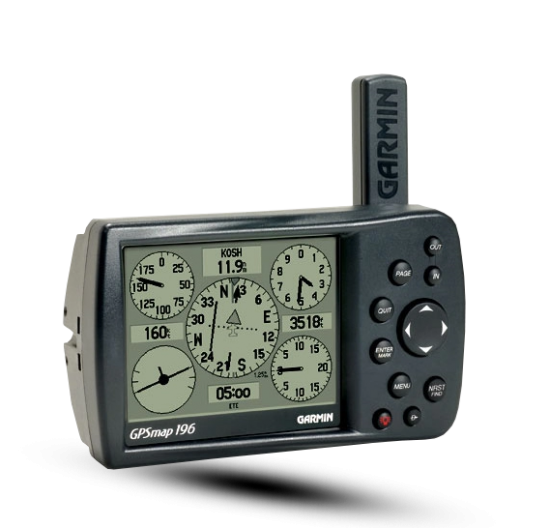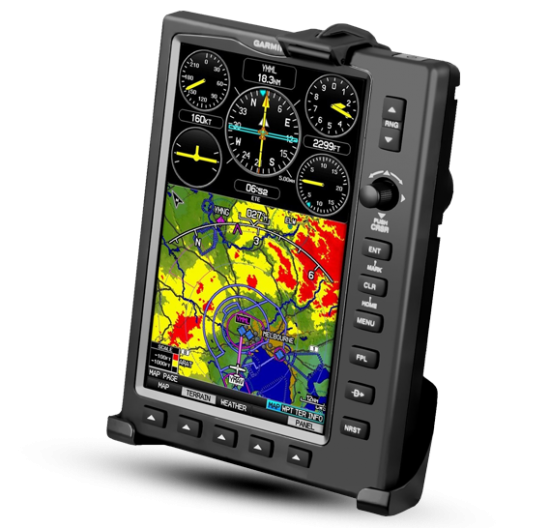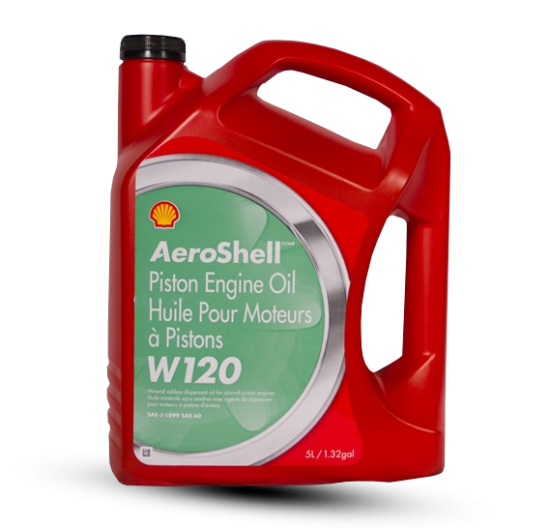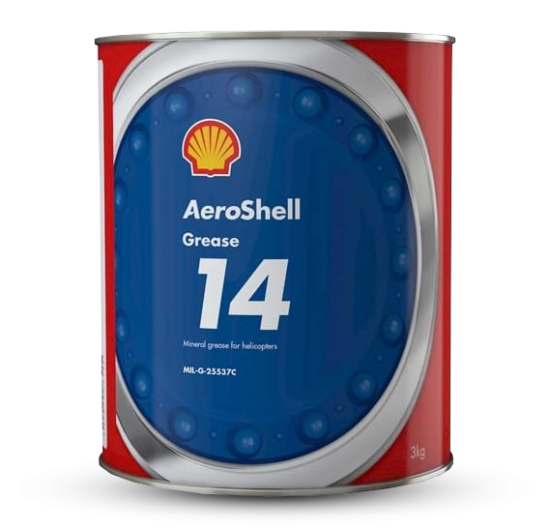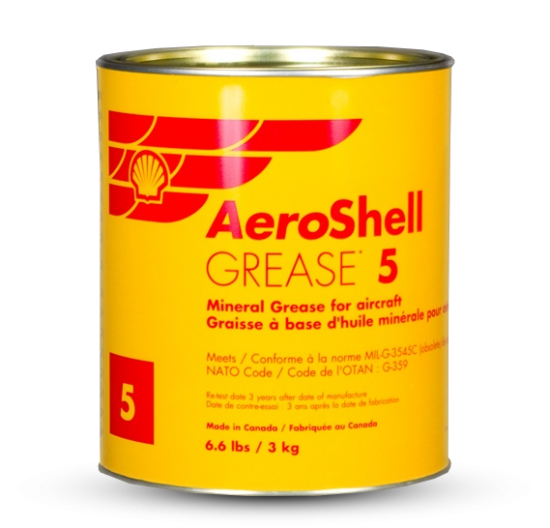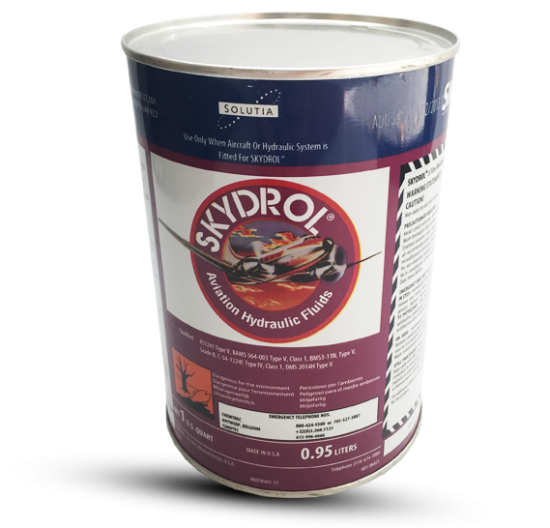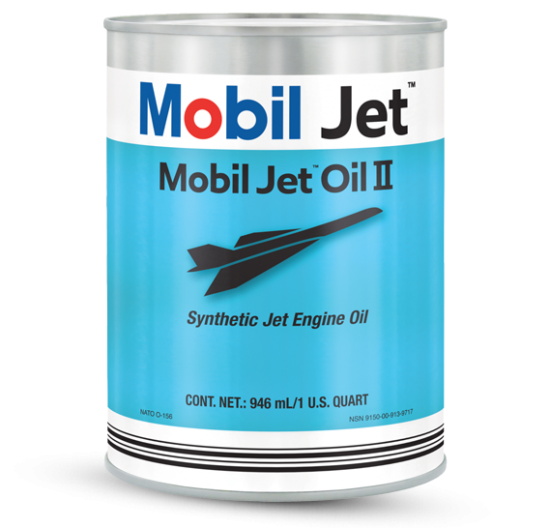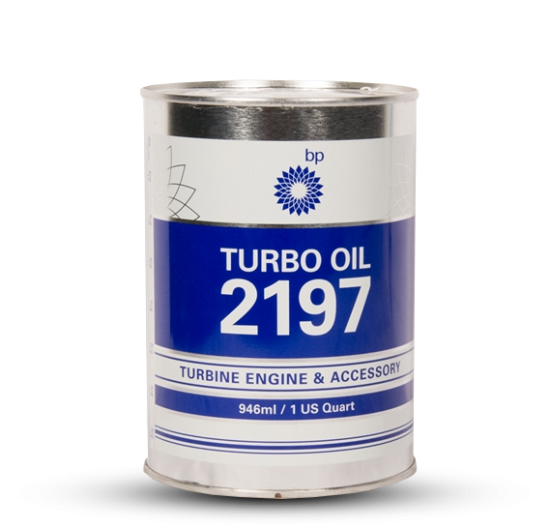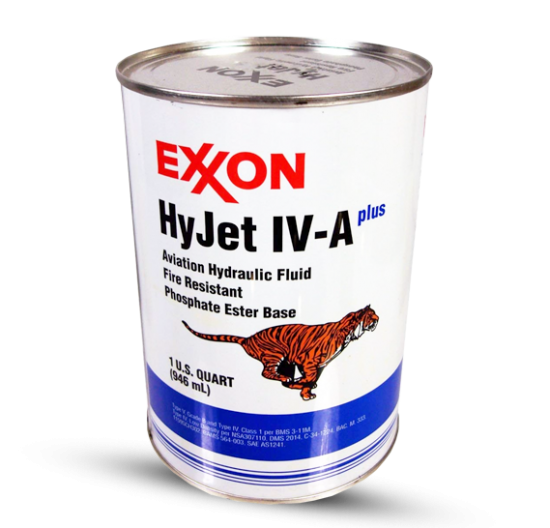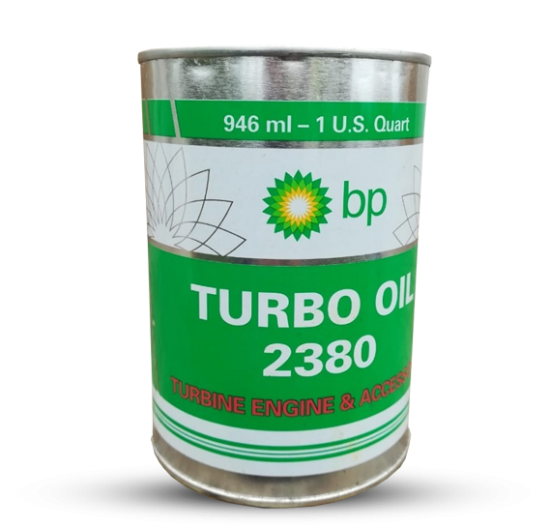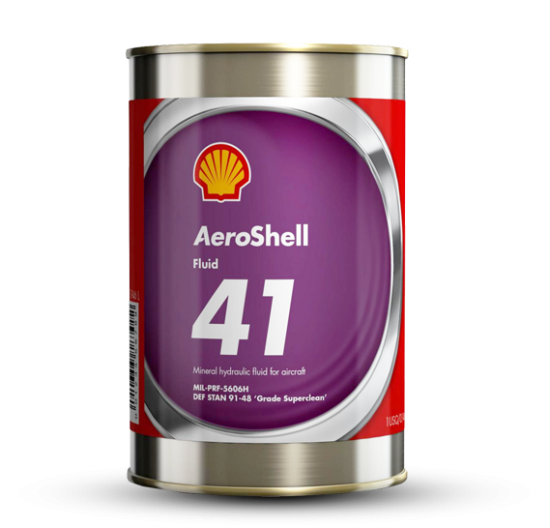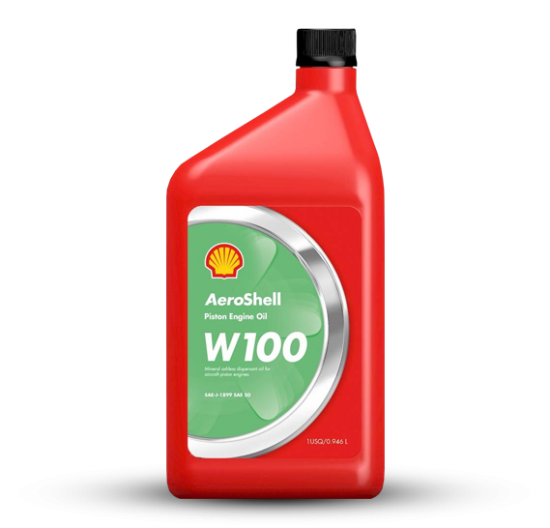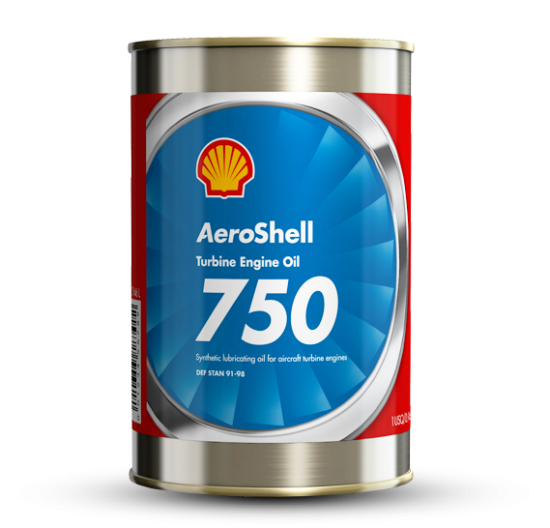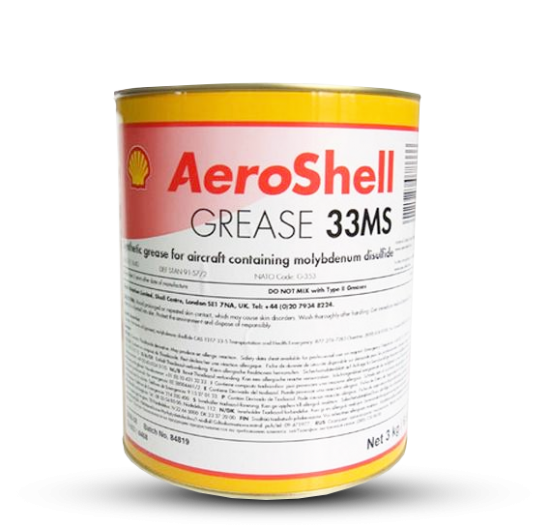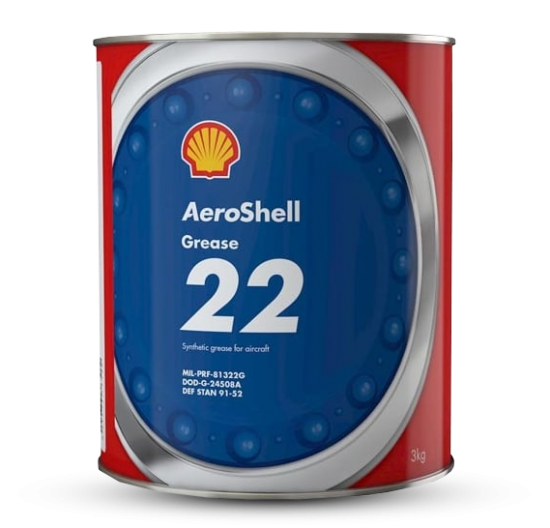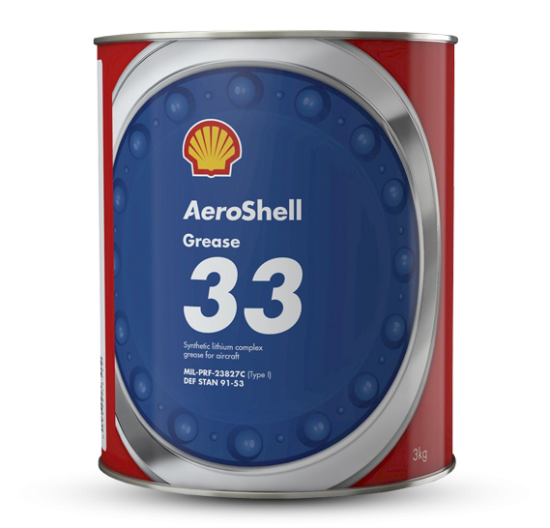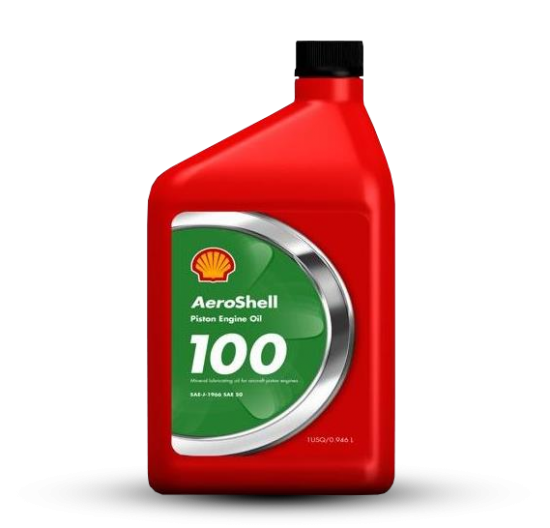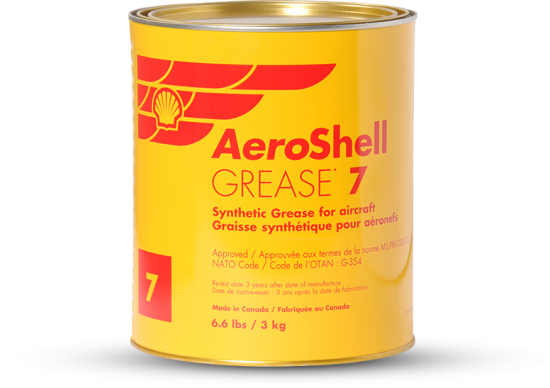
Mobil Jet Oil 254
Trast Aerosupermarket (Aquiline Internationl Goup of Companies) stocks large quantity of Mobil Jet Oil 254 at its premises at Sharjah International Airport Free Zone (SAIF Zone) available for immediate delivery worldwide.
UAE Phone: +971 (6) 5570710, International phone: +8 835 1000 124 3547 e-mail: 
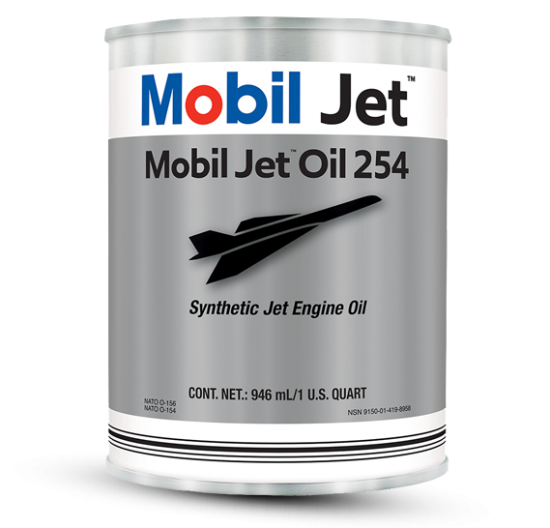
Sale Mobil Jet Oil 254
Introduction
Viscosity is often thought of as the "thickness" or sometimes the "body" of an oil. For gas turbine lubricants Get oils), viscosity is measured as Kinematic Viscosity (KV). The unit of KV in the Sl system (Le System International d'Unites), is millimeter squared per second (mm'/sec). But the more general unit adopted is the centiStoke (cS or cs). 1 cs = 1mm'/sec.
Viscosity changes with temperature and with pressure exponentially. It becomes much higher at low temperatures and at high pressures.
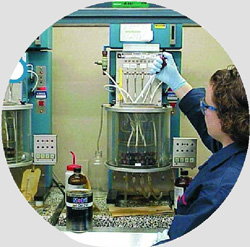
Rate of Change
The Viscosity Index (VI) of an oil is the measure used to assess the rate of change of viscosity with temperature. A high VI indicates an oil where the rate of change of viscosity with temperature is low.
A pressure viscosity coefficient a is used to indicate the rate of increase of viscosity with pressure. Coefficient a is used during engine design to calculate the oil film thickness in lubricated contact zones.
Classifying Oils
Synthetic gas turbine oils are classified by their viscosity at 100 degrees Centigrade. The grades are: 3cs, 4cs, 5cs and 7.5cs. The 5cs grade is used in the majority of engines used in commercial aviation. 5cs oils are limited by specification to a maximum value of 13,000cs at minus 40 degrees Centigrade.
5cs oils are often referred to as "Type 2" oils. This is a reference to viscosity grade.
Changes in Viscosity
Viscosity can increase as the result of oxidative degradation in engine operation. However, due to the exceptional bulk oil stability of modern oils, this effect is very low and it does not limit the life of the oil in the engines. Viscosity decreases are usually the result of contamination with a less viscous fluid.
In exceptional circumstances, for instance, in certain engine configurations where oil volatilization is a significant factor in the total oil consumption, the viscosity can increase without oxidation taking place. This happens when the "lighter ends" volatilize off, leaving the more viscous component of the oil behind. The viscosity of the oil "charge" in the engine can continue to increase as more top off oil is added and volatilization continues.
For Your Information
• Mobil Jet Oil II (Second Generation) and Mobil Jet Oil 254 (Third Generation) are classified as 5cs.
• With these two Mobil products, viscosity increase and lack of lubrication are not limiting factors in the operation of gas turbine engines.
exxonmobil.com
![]() Download MSDS Mobil Jet Oil 254
Download MSDS Mobil Jet Oil 254![]() THE TOXICITY OF COMMERCIAL JET OILS
THE TOXICITY OF COMMERCIAL JET OILS![]() Mobil Jet Oils - Equipment Builder Reference Guide
Mobil Jet Oils - Equipment Builder Reference Guide![]() World Jet Fuel Specifications
World Jet Fuel Specifications![]() World Jet Fuel Specification old
World Jet Fuel Specification old
* Evaluation Mobil Jet
* Viscosity
* Advantages Mobil Jet Oil 254
* Three Jet Oils
* Oil Lifetime
Mobil Jet Oil 254 - Synthetic oil is a third-generation, extra high performance, synthetic aircraft-type gas turbine lubricant engineered to meet the performance requirements for gas turbine engines.
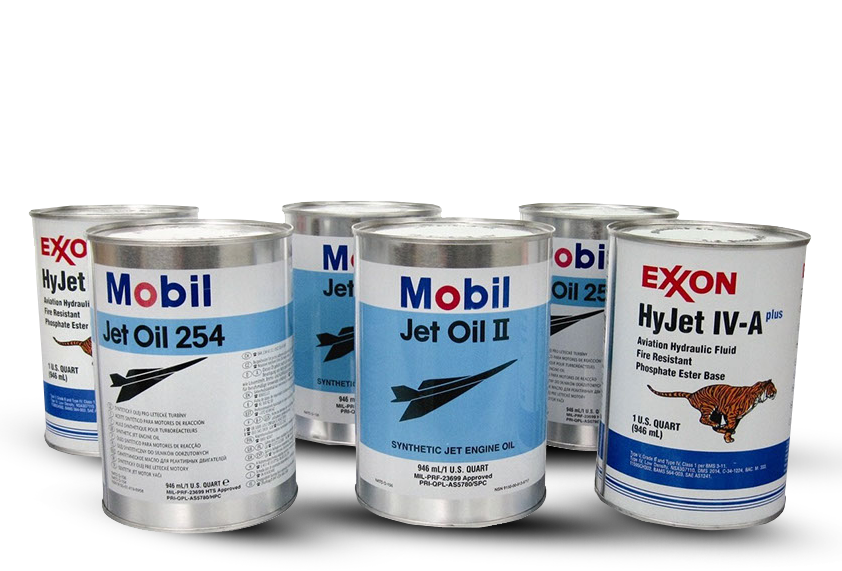
OUR BEST OFFER!
TRAST Aerosupermarket
